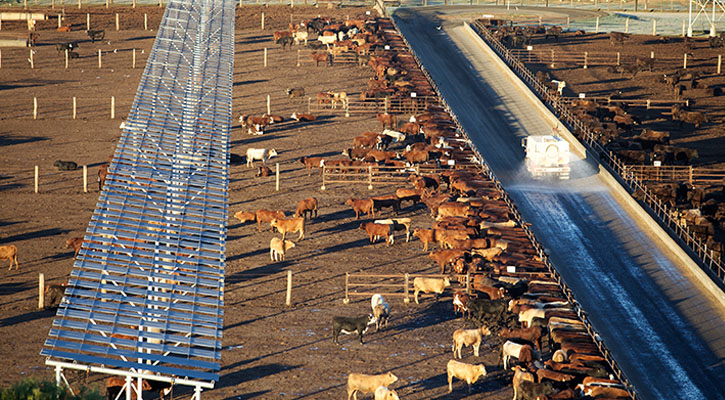Grain growers, cattlemen big winners in free trade deal with Indonesia

Australian Financial Review | 29 August 2018
Grain growers, cattlemen big winners in free trade deal with Indonesia
The free trade agreement with Indonesia is set to give grain growers new avenues into their biggest wheat market and put cattle producers in northern Australia on their strongest footing since Labor’s snap ban on live exports in 2011 devastated the industry.
The grains industry is anticipating a breakthrough on feed grain access to build on annual milling wheat exports worth about $1.3 billion.
GrainGrowers chief executive Dave McKeon said the grower lobby group had been pushing for a trade deal that delivered access to the rapidly growing Indonesian feed grain market.
"If this result is achieved, it will also allow for improved diversity in grains trade between the two countries, thereby boosting opportunities for the Australian grain industry and Indonesia’s food manufacturing, stockfeed and livestock sectors."
It is understood a business delegation that was set to accompany former prime minister Malcolm Turnbull on his trip to Indonesia was cancelled following the upheaval in Canberra last week.
The trade deal is understood to include a reduction in tariffs and better access for agricultural goods including sugar, dairy, citrus and potatoes in addition to grains.In relation to live exports, the trade deal is tipped to include a starting annual export quota of 575,000 feeder cattle, with that number growing by 4 per cent a year over five years to 700,000 head.
Cattle industry sources also expect liberalised access for female, or breeder cattle, to assist Indonesia with its ambitions to boost domestic supply.
The initial quota is considered modest given Australian exports for the 12 months to the end of July were about 530,000 head and shipments reached about 730,000 head in 2014.
Major northern cattle producers said what they looked forward to was greater certainty around the trade.
Mixed messages
They said the industry had fought back strongly from the 2011 ban, but still struggled to interpret mixed messages from Indonesia on import numbers and specifications.
The trade deal is also significant boost for the live cattle trade, worth $1.2 billion across all segments and markets last year, as it braces for a renewed attack from animal welfare campaigners who have brought the live sheep trade to the Middle East to a standstill.
The livestock and meat processing industries anticipate a further reduction of already low-level tariffs on boxed beef and sheep meat.
Where tariffs do exist on meat products, they are set to be reduced from up to 5 per cent to zero or 2.5 per cent immediately and then phased out altogether.
Australian Livestock Exporters’ Council chief executive Simon Westaway said everything was pointing in the right direction for cattle exports in terms of market access.
"We are optimistic about a strong win-win outcome on live cattle as well as other commodities," he said.
"Indonesia is the Australian livestock export industry’s most important market and our most valuable market relationship is with Indonesia."
Higher prices
Australia exported 880,000 cattle last year, including about 512,000 to Indonesia where higher prices for Australian cattle in recent times and imports of India buffalo meat have had an impact on demand.
Mr Westaway said the industry was hoping the free trade agreement would boost the long-term sustainability of the trade.
"All the portents are there that this should be a growing market and a sustainable market," he said.
"We have fabulous supply chains out of northern Australia, the Indonesia market is purpose fit for Australia and that is something we understand the Australian and Indonesian negotiators have seen value in."
ASX-listed live exporter Wellard said any increase in certainty on export numbers would benefit exporters and producers reliant on Indonesia as a market outlet and provider of price competition.
"It will also provide our importers with greater commercial certainty than currently exists, and that certainty will allow them to buy with greater confidence," Wellard executive chairman John Klepec said.





